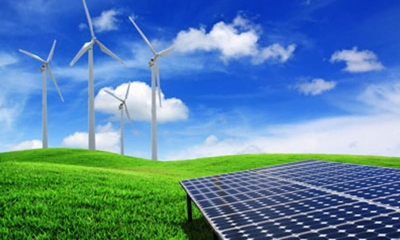G7 commits to boost India's clean energy transition
By IANS | Published: June 29, 2022 08:18 AM2022-06-29T08:18:04+5:302022-06-29T08:40:14+5:30
New Delhi, June 29 Leaders from the G7 have finished their three-day meeting in a spa resort in ...

G7 commits to boost India's clean energy transition
New Delhi, June 29 Leaders from the G7 have finished their three-day meeting in a spa resort in the Bavarian Alps with a commitment to the Paris Climate Agreement, even as they agreed for close collaboration with developing countries to boost clean energy and resilience through new initiatives, comprising its commitment for Just Energy Transition Partnership with India.
They have committed to achieving a fully or predominantly decarbonised electricity sector by 2035, recognising that emissions from coal power generation is the single biggest cause of global warming.
While the G7 countries, which consume close to one billion tonnes of thermal coal annually, did not specifically mention a 2030 coal phaseout date, a predominantly or fully decarbonised power sector by 2035 implies a 2030 coal phaseout, according to IEA's net zero by 2050 report.
Consuming one billion tonnes of coal annually is about 16 per cent of global thermal coal consumption and about the same as the total thermal coal consumed by India, Indonesia, and South Africa combined.
So the implications of 2035 power sector decarbonisation means phasing out coal power in G7 and EU member countries would avoid 1.9 billion tonnes of CO2 emissions annually, which is more than the combined total CO2 emissions from all southeast Asian countries.
The G7 an informal grouping of seven of the world's advanced economies: Canada, France, Germany, Italy, Japan, the UK, the US and the European Union called for opening up gas investments to help lessen dependence on Russian energy.
German Chancellor Olaf Scholz had invited Indian Prime Minister Narendra Modi, along with Argentina, Indonesia, Senegal, and South Africa to the 2022 Summit as partner countries.
While opening up gas investments could have been the headline, it was the leaders' decision, led by German Chancellor Scholz, to open up space for gas investments in the name of energy security in the face of the Russian war in Ukraine.
In the face of their own energy crisis, the leaders chose to "stress the important role increased deliveries of LNG can play, and acknowledge that
Disclaimer: This post has been auto-published from an agency feed without any modifications to the text and has not been reviewed by an editor
Open in app